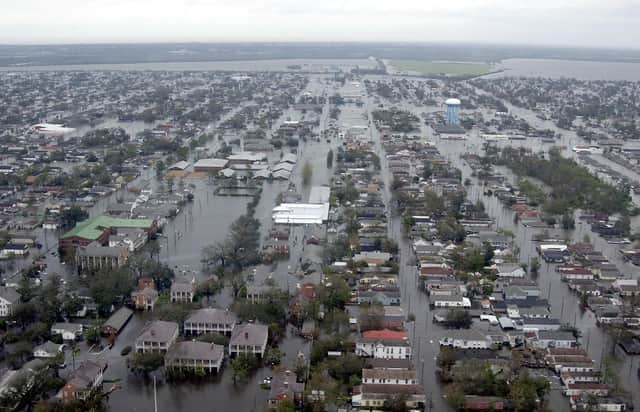Climate change: Spiralling cost of weather disasters shows dramatic impact of just one degree of warming – Scotsman comment


However, on a global scale, the insurance industry will have noticed a huge difference.
For, according to figures produced by the United Nations’ weather agency, the cost of extreme storms and other such disasters has gone up by nearly eight times since the 1970s.
Advertisement
Hide AdAdvertisement
Hide AdFrom 1970 to 1979, the bill was $175 billion (£127 billion), but from 2010 to 2019, it was $1.38 trillion (£1 trillion), which both figures expressed in 2019 dollars to account for inflation. Weather disasters are also occurring more than four times more often, the World Meteorological Organisation said.
The good news is that better weather reporting and improved emergency responses means far fewer people are actually being killed. In the 1970s and 1980s, the death toll was an average of 170 a day, but by the 2010s this had fallen to 40 a day.
However Petteri Taalas, secretary-general of the WMO, added: “The bad news is that the economic losses have been growing very rapidly and this growth is supposed to continue. We are going to see more climatic extremes because of climate change, and these negative trends in climate will continue for the coming decades.”
All this is further proof, if it were needed, that climate change has already had a significant effect after just over one degree Celsius of warming.
Allowing this process to continue, with the risk of going past tipping points that would trigger irreversible processes, would be an unconscionable act of folly.
A message from the Editor:
Thank you for reading this article. We're more reliant on your support than ever as the shift in consumer habits brought about by coronavirus impacts our advertisers.
If you haven't already, please consider supporting our trusted, fact-checked journalism by taking out a digital subscription.
Comments
Want to join the conversation? Please or to comment on this article.
